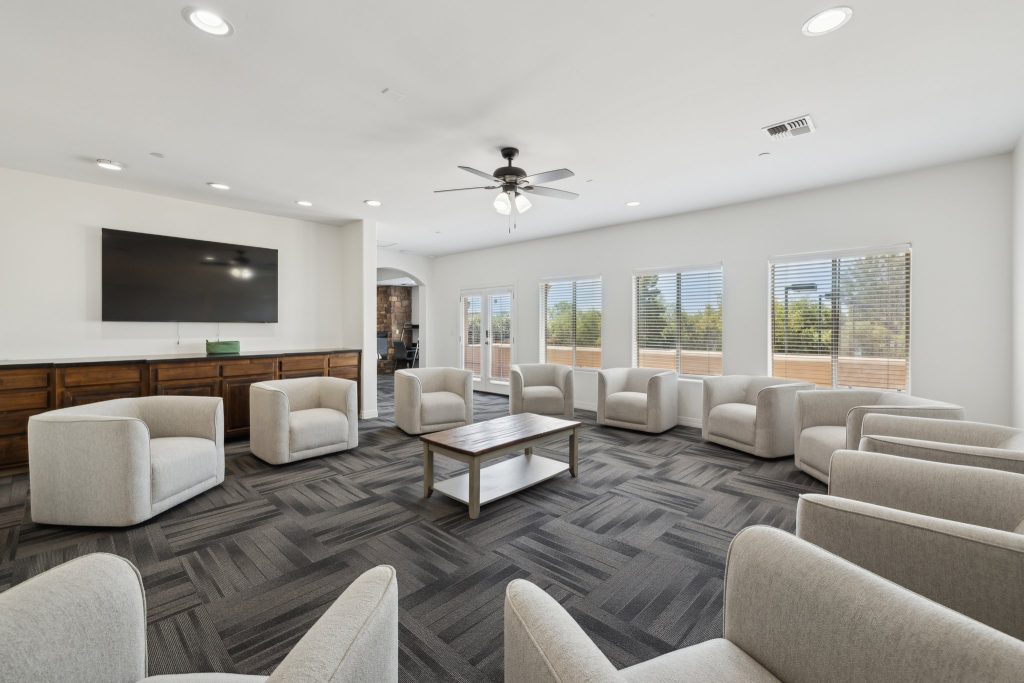Nexus Academy | Personalized Drug & Alcohol Rehab
Depression in Teen Boys
According to a 2021 study, over 10% of adolescent males deal with at least one major depressive episode in the past year. If left untreated, these episodes can create more serious problems and develop into a teen depressive disorder and other co-occurring behavioral health conditions.
Table of Contents
ToggleTeen Boy Depression Treatment in Arizona
If you’re worried that your teen son or loved one is struggling with depression, our team at Nexus Teen Academy is here to help. We can provide a clinical assessment to determine if your son can benefit from residential treatment at our teen male depression treatment center in Arizona. To learn more about our offerings, give our team a call today.
Our 10-bed adolescent male depression treatment centers utilize individualized treatment plans to ensure that each care program fits the specific needs of your son. Treatment will utilize evidence-based therapies like CBT and DBT, as well as holistic therapies like meditation, sound therapy, and equine therapy to provide a comprehensive approach to care.
Call today and get the admissions process started and get your teen into our program.









Understanding Depression in Teenage Boys
Depression is more than just feeling down or having a bad day. It is characterized by persistent sadness that lasts for weeks, months, or longer. This problem can significantly impact your teen’s overall behavior, leading to emotional, behavioral, and physical changes that can hinder their day-to-day lives, making tasks such as academics, social gatherings, and more challenging.
Moreover, depression is not something that just disappears or can be overcome through pure willpower. Clinical depression, like other health conditions, requires the help of a professional. While the extent of treatment will depend on a case-by-case basis, if your son is struggling with depression, it is not something you can ignore.
But how do you recognize it in the first place? Let’s get a better idea of the common signs of this problem.
Signs of Depression in Teen Boys
It is vital to learn the common signs of depression in teen boys to help differentiate between clinical depression and general moodiness. Learning these signs is an important first step in getting your son the help they need. Let’s take a look at a few common emotional and physical signs of depression in teen males:
Emotional Signs
- Low self-worth
- Irritability
- Hopelessness
- Frustration, even over small things
- Persistent sadness
- Fixation on past problems or failures
Physical Signs
- Extreme fluctuations in weight
- Restlessness and an inability to sit still
- Self-harm, cutting or burning scars
- Less attention on personal hygiene
- Frequent body aches or headaches
- Slowed body movements
- Tiredness
These are just some of the common signs of teen depression. To get a better understanding of whether your son may be struggling, contact our team today. We can provide a clinical assessment to determine the best course of action.
Helping a Teen Son with Depression
Adolescent male depression can be difficult to deal with, and you may not know where to begin. The most important thing is to find professional help as soon as possible. If the problem is left untreated, it can lead to more potentially dangerous problems like long-term depression, self-harm, or even teen suicide attempts.
This is not a problem that should be faced alone; you should rely on the help of trained mental health professionals to guide you on the best course of action depending on the severity of your teen’s situation. For example, if the problem is less severe, general counseling sessions may be able help, but for more serious problems, your teen may require the help of a teen residential treatment center.
To better determine how you can help your teen son with depression, give Nexus Teen Academy a call now. We can learn about your teen’s situation and provide advice based on what they are dealing with. Call now to learn more.
Residential Male Depression Treatment at Nexus Teen Academy
If you are looking for residential treatment for your teen boy with depression, Nexus Teen Academy is here to help. Nexus is a premier adolescent resiential treatment center in Arizona that can help set your son up for long-term success.
Our Teen Male Depression Treatment Program
Nexus Teen Academy takes a luxury approach to teen mental health treatment. At our Oak facility in Scottsdale, teen males can get the help they need in a peaceful, secluded setting packed with amenities like a pool, hot tub, tennis court, arcade games, video games, television, and more.
While our treatment is state-of-the-art, utilizing both evidence-based and holistic approaches, we aim to want to ensure that your son’s stay is comfortable and feels like home. Our treatment program is led by Clinical Director Hannah Carr, and our staff has decades of combined experience working in the teen mental health and substance abuse space, so you can be assured that your son is in the right hands.
If you are worried about your son with depression, call our team now, and we can get the treatment process started.

Private Insurance Plans Accepted
Teen Anxiety FAQs
What Causes Teen Anxiety?
Teen anxiety can be caused by many things, including:
- Genetic and hereditary factors
- Socioeconomic standing
- Academic difficulties
- Stress
- Other mental health disorders
How Many Teens Have Anxiety?
About 1/3 of teens struggle with some form of anxiety, while almost 10% (5.8 million) children and teens are diagnosed with an anxiety disorder.
How Do You Help Teens With Anxiety?
For severe problems, A teen residential treatment center may be the best solution for treating anxiety. For mild anxieties, regular counseling coupled with lifestyle changes can help your teen see improvements.
